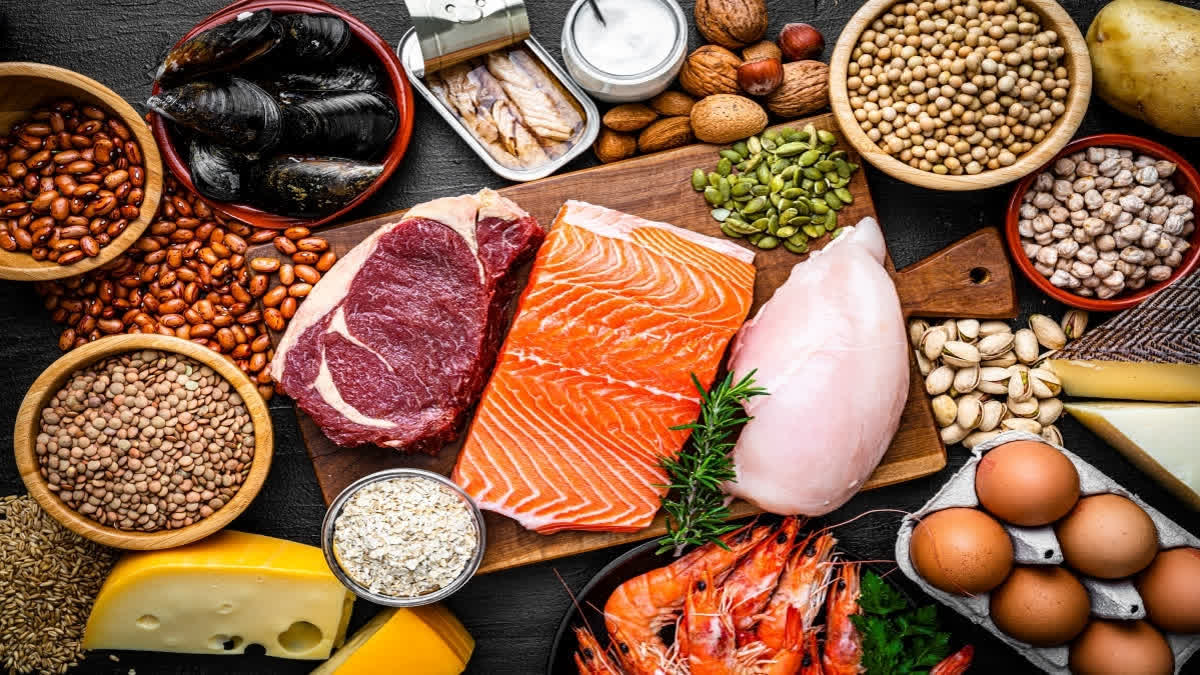New Delhi: To promote the importance of a balanced diet and healthy lifestyle, the National Nutrition Week is observed every year from September 1 to 7. This annual event raises awareness about nutritional needs and encourages healthy eating habits among individuals of all ages.
History
Led by the Academy of Nutrition and Dietetics, National Nutrition Week was started in the US in 1980 to promote healthy eating and raise awareness about the importance of proper nutrition. In India, the week is marked with various activities and campaigns highlighting the importance of nutrition and health.
National Nutrition Week is a crucial platform for highlighting the advantages of a balanced diet. Participating in a variety of activities and gaining nutrition knowledge will empower people to make informed food decisions and improve their overall health.
Benefits & Opportunities
With a focus on educating the public about the benefits of proper nutrition and its role in preventing various health issues, National Nutrition Week 2024 provides an opportunity for communities, schools, and organisations to engage in activities that highlight the significance of consuming a diverse range of nutrients. The aim is to foster a culture of healthy eating and well-being for everyone.
National Nutrition Week 2024
The theme for National Nutrition Week this year is ‘Nutritious Diets for Everyone.’ It supports the United Nations’ goals for sustainable development. The theme also focuses on encouraging diets that meet the nutritional needs of people at all stages of life.
WHO’s View on Nutrition
Nutrition is a critical part of health and development. Better nutrition is related to improved infant, child and maternal health, stronger immune systems, safer pregnancy and childbirth, lower risk of non-communicable diseases (such as diabetes and cardiovascular disease), and longevity. People with adequate nutrition are more productive and can create opportunities to gradually break the cycles of poverty and hunger.
However, malnutrition, in every form, presents significant threats to human health. “Today the world faces a double burden of malnutrition that includes both undernutrition and overweight, especially in low- and middle-income countries. There are multiple forms of malnutrition, including undernutrition (wasting or stunting), inadequate vitamins or minerals, overweight, obesity, and resulting diet-related noncommunicable diseases,” the WHO said.
Current Diet and Nutrition Scenario in India
According to the latest study conducted by the Indian Council of Medical Research (ICMR), severe forms of undernutrition such as marasmus, kwashiorkor, and keratomalacia have largely disappeared, yet subclinical manifestations of undernutrition and anaemia persist as public health issues.
Estimates show that 56.4 per cent of the total disease burden in India is due to unhealthy diets. A healthy diet and physical activity can reduce a substantial proportion of coronary heart disease (CHD) and hypertension (HTN) and prevent up to 80 per cent of type 2 diabetes.
The most logical, sustainable and long-term solution to all forms of malnutrition is ensuring the availability, accessibility and affordability of nutrient-rich foods while promoting the consumption of diverse foods from various food groups.
“Dietary guidelines play a pivotal role in guiding individuals towards selecting appropriate foods in adequate quantities across a range of food groups, thereby facilitating optimal nutrition throughout the lifetime,” the ICMR study said.



